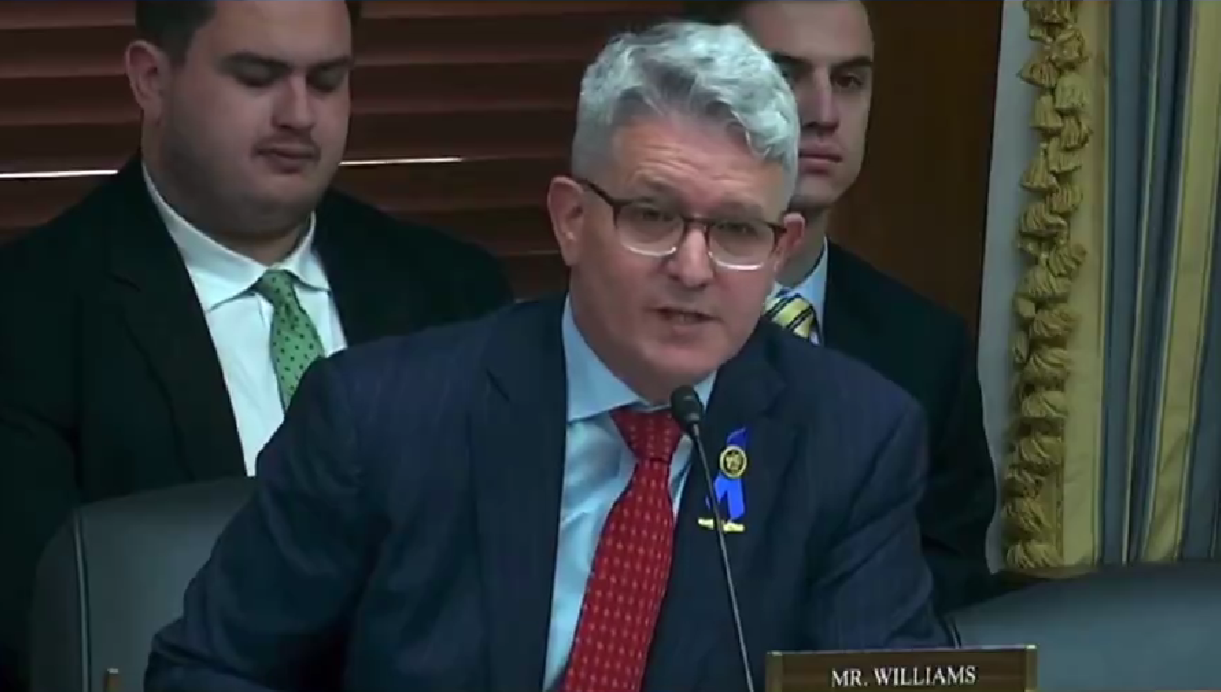
ACP
Though the ACP enjoys bipartisan support among voters, it has become a contentious issue within the federal government.

 Screenshot of Rep. Brandon Williams, R-New York from a video clip on X
Screenshot of Rep. Brandon Williams, R-New York from a video clip on X
WASHINGTON, May 21, 2024 – In the past week, two new proposals have surfaced to refund an expiring internet subsidy program that assists 23 million low-income U.S. households with the cost of a monthly broadband subscription.
The first proposal would amend an appropriations bill enacted in March to include funding for the Affordable Connectivity Program, which is set to expire in ten days. The other proposal, still pending formal introduction, advocates for a significantly stripped-down version of the monthly subsidy contained in the ACP.
Introduced on Monday by Rep. Brandon Williams, R-New York, the bill (H.R. 8466) would allocate $6 billion to the ACP by amending the Consolidated Appropriations Act of 2024.
Williams’ proposal includes measures to combat fraud by requiring eligible households to enroll in the ACP through the National Verifier or National Lifeline Accountability Database.
These databases check and confirm applicant eligibility to ensure only those meeting specific criteria can enroll, and to prevent multiple enrollments by the same household. Additionally, they enhance accountability and traceability, making it easier to detect and address fraudulent activities.
Williams’ proposal ensures that all households currently enrolled in the program will remain eligible to receive benefits for 180 days after the bill’s passage, regardless of future eligibility status.
Williams in his Monday press release emphasized that this approach would not burden taxpayers, saying his ACP funding would be covered by existing federal resources.
The bill’s text has yet to be released. There was no mention in the press release of any significant changes to the $30 monthly ACP benefit.
Another proposal put forth by Sen. Ted Cruz, R-Texas, last Wednesday would significantly alter the ACP by reducing the monthly subsidy for urban areas from $30 to $10 a month.
Cruz’s plan includes several provisions that are likely to face opposition from Democrats. Nevertheless, it could play a significant role in shaping the negotiations between Democrats and Republicans on how to maintain the ACP broadband benefit, which the Federal Communications Commission began in late 2021.
The senator’s proposal would introduce stricter verification requirements, mandating participants provide the last four digits of their Social Security numbers to enroll.
Another major change involves preventing overlap with the Lifeline Program, an older subsidy effort that supports phone and internet services for low-income households.
Cruz suggests that the FCC should end Lifeline’s broadband support to avoid duplication. Under the FCC’s Lifeline program, eligible consumers can get up to $9.25 off the cost of phone, internet, or bundled services.
Cruz’s proposal would exclude able-bodied adults without dependents from receiving subsidies through the ACP, according to reports by Politico.
Politico reported that Cruz would introduce this bill last Thursday, but there has been no official introduction yet.
Cruz has emerged as a strong critic of the program, previously accusing the FCC of mismanagement and not effectively detecting fraud within the ACP.
Last December, Cruz led a letter to the FCC alongside fellow Republicans criticizing the program as “wasteful.” This is despite, according to FCC data, 68 percent of participating ACP households reporting they had inconsistent or zero connectivity prior to the implementation of the ACP.
Although the ACP enjoys bipartisan support among voters, it has become a contentious issue within the government.
Other legislation to save the ACP includes an initiative from Sen. Maria Cantwell, D-Washington, which would allow the FCC to borrow $7 billion from the Treasury to shore up the program.
This, and other legislation, like the ACP Extension Act aiming to allocate $7 billion to further the ACP, have largely stalled since being introduced.
